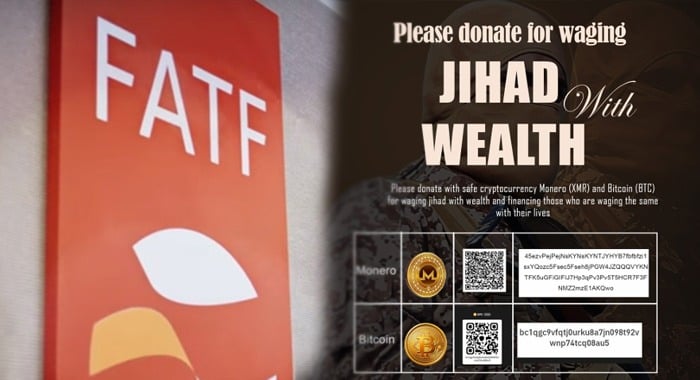The Financial Action Task Force (FATF) has issued a global alert over the increasing misuse of virtual assets, warning that cryptocurrencies are being exploited to fund terrorism, launder money, and facilitate weapons proliferation posing an imminent threat to the international financial system. The warning comes amid disturbing revelations that the Islamic State Khorasan Province (ISKP) has begun openly soliciting donations in cryptocurrency to finance its operations.
In its latest report, the Paris-based FATF emphasized the urgent need for coordinated global action to address the rising financial crime risks posed by virtual assets and their service providers. The watchdog urged all countries to adopt and enforce its standards, particularly those designed to counter money laundering, terrorist financing, and the funding of weapons of mass destruction.
The FATF’s call to action gains heightened significance in light of a recent development: the ISKP, a designated terrorist organization, used its propaganda magazine Voice of Khorasan to publish a cryptocurrency wallet address, soliciting financial support through digital assets. This act underscores the growing appeal of unregulated crypto channels for extremist groups seeking to evade international financial surveillance.
In its detailed findings, the FATF warned that the global financial system is exposed to a surge in virtual asset-linked crimes. It noted that while countries like Pakistan are moving toward regulatory frameworks for digital currencies, most have yet to impose comprehensive restrictions or achieve full compliance with FATF guidelines. Pakistan, for instance, has assessed the risks posed by virtual assets but has not formally banned their use.
The report acknowledged Pakistan’s ongoing legislative efforts to register and license virtual asset service providers (VASPs) under anti-money laundering and counter-terrorism financing (AML/CFT) frameworks. This includes enforcing the FATF’s “Travel Rule,” which ensures transparency in cross-border virtual asset transfers.
FATF warned that the inherently borderless nature of virtual assets allows criminal networks including terrorists, drug cartels, and state-sponsored actors to exploit regulatory loopholes across jurisdictions. Of particular concern is the increasing use of stablecoins by groups like North Korea to bypass sanctions and finance illicit operations.
Citing a record-breaking heist earlier this year, FATF revealed that the Democratic People’s Republic of Korea (DPRK) stole $1.46 billion in digital assets from the crypto platform Bybit. Only 3.8% of the stolen funds have been recovered, exposing major flaws in international cooperation on asset recovery and enforcement.
The report also highlighted a dramatic rise in crypto fraud, with an estimated $51 billion in illicit on-chain activity linked to scams and fraudulent schemes recorded in 2024 alone. FATF warned that widespread adoption of stablecoins and other digital currencies, without consistent regulation, could significantly expand the scope of financial crime worldwide.
Countries that have banned virtual assets outright are also not immune. The FATF cautioned that enforcement of such bans is often costly and complex, and it emphasized that monitoring and oversight mechanisms must remain active regardless of formal prohibitions.
The report called on countries to fully implement Recommendation 15, which requires licensing or registering VASPs, identifying all individuals and entities involved in these services, and applying risk-based supervision. It also urged states to assess the risks posed by offshore service providers and develop comprehensive legal frameworks to address their activities.
To date, 99 countries have either enacted or are in the process of legislating the Travel Rule. To support consistent global implementation, the FATF on Thursday released new guidelines titled “Best Practices on Implementation of the Travel Rule.”
While FATF recognized progress in jurisdictions with high levels of virtual asset activity, it warned that many countries still struggle to identify, register, and regulate VASPs, particularly those operating from offshore locations.
The report concludes with a stark warning: without urgent, coordinated global action, virtual assets will continue to serve as a financial lifeline for terrorist groups, proliferators, and organized criminal networks undermining both national and international security.





